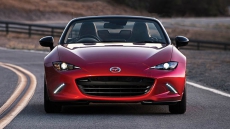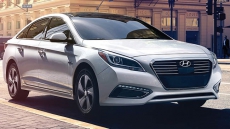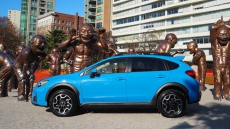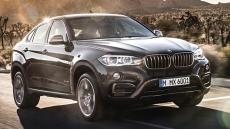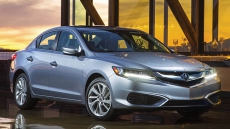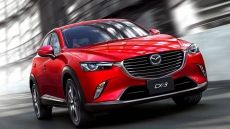AN SUV never looked so good
With formerly only three products under the Range Rover umbrella, it’s clear the brand is all about quality over quantity. However, the family grows a little bigger with the introduction of a fourth member: the Velar mid-size luxury SUV.
Designed to fill the gap between the smaller Evoque and the Range Rover Sport, the Velar – recently taking honours for the Automobile Journalist Association of Canada (AJAC) Best Small Premium Utility Vehicle – is the first example to display a so-called visually reductive approach that will define the next generation of models.

“We call the Velar the avant-garde Range Rover. It brings a new dimension of glamour, modernity and elegance to the brand. The Range Rover Velar changes everything,” says Land Rover chief design officer Gerry McGovern. “Velar is now the compelling, stand-out design in the class, showcasing perfectly optimised volume, powerful, taut surfaces and a stunning silhouette.”
The profile of the vehicle is clean and minimalistic, making every other previous offering look like a box on wheels, with little clutter on the body between the long 2,874-millimetre wheelbase to distract the eye. Even the door handles are flush-mounted and deploy in an electronic pop-out manner similar to the Jaguar F-TYPE. All the pillars and side mirrors are blacked out, and the sleekest headlamps ever created by the brand sit at the front, housing full LED lighting.

It’s a similar story in the cabin as well. Many physical switches as possible have been done away with, with many controls relocated to a futuristic take on the InControl Touch Pro infotainment system, now complete with dual 10-inch high-definition touch screens. The displays are hidden away and do not appear until they are activated and lit.
The top unit is gently curved and is responsible for relaying navigation, media and phone information and even news and weather. Below, there are digital controls for changing climate settings. Inputs happen lightning quick, especially compared to prior versions of the software, which product engineering executive director Nick Rogers attributes to major strides in hardware.

“Our cutting-edge, consumer technology developed by our pioneering engineers provides an intuitive interface with unrivalled performance and functionality. Touch Pro Duo’s super-fast quad core processor and stunning graphics mean that the driver always has the best information needed exactly when they need it,” says Rogers.
Two engines are available: a 2.0-litre four-cylinder diesel developing 180 horsepower and a 3.0-litre supercharged V6 with 380 horsepower, the latter which I borrowed to drive for a week. Both mills are mated to the seamless shifting Jaguar Land Rover standard eight-speed ZF automatic transmission.
The Velar isn’t just pretty, but is designed to be just as off-road capable as its siblings. All-wheel drive is standard, and when equipped with the optional air suspension, the SUV gains a ground clearance of 251 millimetres a maximum wading depth of 650 millimetres. Terrain Response 2 is also present, a traction control system that optimizes grip on a variety of driving surfaces including gravel, mud, sand and rock.

Prices start at $62,000 for the S diesel trim. During this first year of sales, Canada receives 50 units of a grade-topping First Edition model bundled with the V6 and premium interior finishes, a 1,600-watt stereo and three exclusive paint colours: Corris Grey, Silicon Silver, and a unique Flux Silver satin finish hand sprayed at the Jaguar Land Rover Special Vehicle Operations centre in the U.K.
HIGHTLIGHTS:
MSRP(as tested): $73,000
Motor: 3.0-litre supercharged V6
Horsepower: 375 @ 6,500 rpm
Torque (lb-ft): 332 @ 3,500 rpm
Gearbox: Eight-speed automatic
Layout: Front engine, all-wheel drive
Fuel economy: 18.6 L/100 km mixed city/highway (observed)
